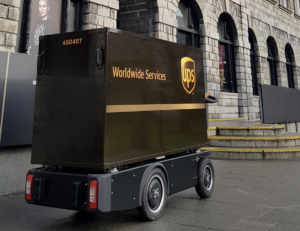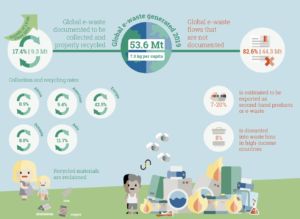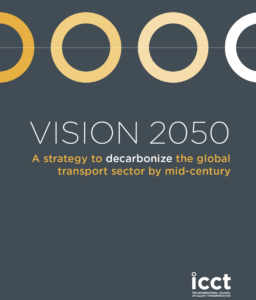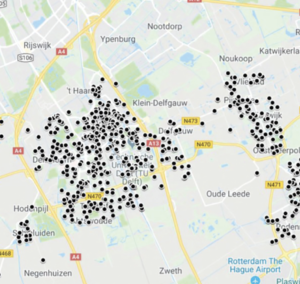Research on shared satellite-based last-mile delivery problems

The paradigms of the on-demand economy and e-commerce let emerge, new business models, challenging the success of non-digital native companies. Delivery options are no longer driven by the supplier, but more and more influenced by the customers’ preferences, with a consequent disruptive impact on the delivery process, and city logistics in particular.
E-waste: logistics eats circular supply chains for breakfast

More and more people are joining the global information society and digital economy, and are benefiting from the opportunities they offer. In parallel, higher levels of disposable incomes, urbanization, and industrialization in many developing countries are leading to growing amounts of electrical and electronic equipment (EEE) and, consequently, to greater amounts of e-waste.
Vision 2050: ICCT strategy to decarbonize the global transport sector

Starting 2021 it’s a good moment look forward to decarbonizing the global transport sector by 2050. Global demand for passenger and freight transportation continues to rise, driven by population and economic growth. As transportation demand has grown so too have carbon emissions from the global transportation sector. September 2020 ICCT presented an inspiring white paper on decarbonization. …
Five main trends in UK’s last-mile logistics

Last-mile delivery has a big impact on two important logistic factors: the shipping cost of parcels and customer satisfaction. Don’t we all know the frustration with shipments not arriving in time and how this makes us feel towards the seller? So, what are the five main trends seen when looking at last-mile delivery in the …
London presents: the construction playbook

The Construction Playbook (by Transport for London) sets out key policies and guidance for how public works projects and programs are assessed, procured, and delivered. The Construction Playbook captures commercial best practices and specific sector reforms outlining the government’s expectations of how contracting authorities and suppliers, including the supply chain, should engage with each other.
City logistics: a blockchain decision framework for collaborative parcel deliveries

The growth in e‐commerce has led to increased pressure within the courier, express, and parcel (CEP) sector to tackle the ‘last‐mile’ issue and come up with solutions that not only satisfy the customers, but also other stakeholders such as city councils and other regulatory bodies. Scholars have highlighted micro‐hubs and the associated horizontal collaboration as …
EIT Urban Mobility: how can cities tap into the potential of last-mile deliveries?

Urban deliveries are a crucial cog of most supply chains. Are sustainable options like e-vehicles and cargo bikes making inroads? In this video, the environment and transport journalist Sam Morgan explores the potential of last-mile deliveries with the expertise of Morten Kabell, urbanist and co-CEO of the European Cyclists’ Federation, and Adrian Hiel from Energy …
Research: using autonomous vehicles for parcel deliveries in cities

Courier, express, and parcel (CEP) services represent one of the most challenging and dynamic sectors of the logistics industry. Companies in this sector must solve several challenges to keep up with the rapid changes in the market. In this context, the introduction of autonomous delivery using self-driving trucks might be an appropriate solution to overcome …
Research: smart method for self-organization in last-mile parcel delivery

Parcel delivery operators experience increasing pressure to meet the growing demand for delivery services while protecting city livability and the environment. Improving the performance of the last mile of delivery is considered key in meeting this challenge as it forms the most inefficient, expensive, and environmentally unfriendly part of delivery operations.

